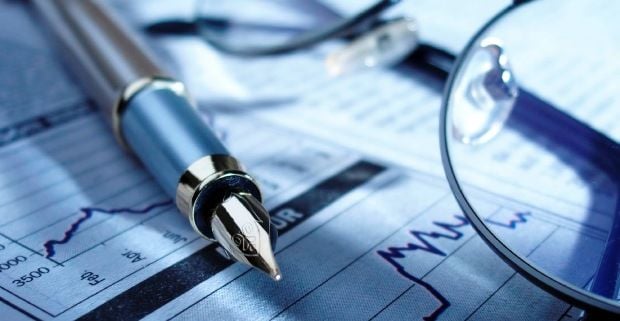
Week’s balance: passion for Abromavicius, government unity, and hryvnia devaluation
A scandalous resignation of Aivaras Abromavicius, new old faces in the government and another round of devaluation – these are the main economic news of the past week.
The past week was marked by one of the biggest scandals in the history of Ukrainian politics - a resignation statement by the Minister of Economic Development and Trade Aivaras Abromavicius due to political pressure from the pro-presidential party and officials from the Presidential Administration.
The scandal has caused great concern among Ukraine’s international partners. In particular, the ambassadors of 9 states – France, Canada, Germany, Italy, Lithuania, Sweden, Switzerland, UK and the U.S. – expressed their disappointment in Abromavicius’ statement.
On February 4, Ukrainian President Petro Poroshenko invited the ambassadors, with Prime Minister Arseniy Yatsenyuk and Parliament Speaker Volodymyr Groysman attending, to reassure foreign diplomats of the unity of the Ukrainian branches of power and commitment to reforms.
And it seems that the Cabinet members began to feel much more confident. During the hour of questions to the government in the Verkhovna Rada on Friday, Yatsenyuk said that if the parliament moves to reformat the Cabinet, the entire government will resign.
"We came as a team and we work as a team. If it is decided that the team be changed, all of us will go. But we will fight to the last," Yatsenyuk said, emphasizing on the last words
As this, Abromavicius is not going to withdraw his resignation letter despite the support of the prime minister, that’s according to the economy minister’s Twitter. At the same time, the circumstances of the dismissal of the minister caused a real storm in the Ukrainian political circles.
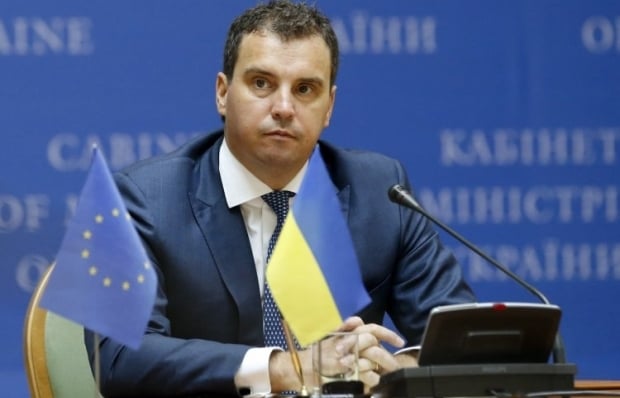
On February 3, at a press conference on the privatization issues, too regular as it would seem at first sight, Abromavicius said he could no longer resist the blocking of reforms and attempts to establish control over financial flows at the state-owned enterprises.
"The reason for my resignation is a sharp intensification of the blocking of any systemic and important reforms. It is not just the lack of support or political will. It’s the active measures aimed at paralyzing our reformatory work, ranging from me and my family being unexpectedly deprived of security guards ending with shady figures being implanted into my team under increasing pressure and lobbied to key positions in state-owned enterprises," the minister said.
According to Abromavicius, MP from the Block of Petro Poroshenko Ihor Kononenko lobbied for the appointment of certain people to positions of executives at the state-owned companies. In particular, it’s about Derzhzovnishinform, the National Agency for Accreditation, state holding Ukrkhimtransamiak, as well as certain enterprises of powder metallurgy.
The Minister stressed that the boiling point was an attempt to impose a new deputy minister of economic development responsible for Naftogaz and defense sector.
“The culmination of the lawlessness in personnel issues and desire to fully subdue [the money] flows was the will to have his [Kononenko’s] ‘own’ deputy minister in the Ministry of Economy, who would be responsible for Naftogaz and other state-owned enterprises. The candidate presented a full package of documents for his appointment and said: ‘I want to be your deputy. I’m in Kononenko’s team, and my candidacy has been agreed above.’ Then I received a call from Presidential Administration with an insistent recommendation to accept this person, and also another one - as deputy for defense issues. To which I replied: ‘I will not be part of this bargaining,’ and asked to release from office. Eventually, Kononenko said he wants to hear my report at a faction meeting and consider my resignation. I decided to facilitate the task of Kononenko and his team, so I submitted a resignation letter," said Abromavicius.
The Minister later confirmed initial report by MP Serhiy Leshchenko that it was the current deputy chairman of board of Naftogaz, Andriy Pasishnyk, who was lobbied for the position.
"Pasishnyk, who is a current deputy chairman of Naftogaz, is historically close to Volya Narodu [Will of the People] parliamentary group, which recently started to save the Coalition with votes after [Oleksiy] Dovhiy had entered it. But in return for this, Volya Narodu wanted its interests in the energy market to be taken into account. In particular, in Ukrgasdobycha company. This company has recently become subordinate, through Naftogaz, to the Ministry of Economy," said Leshchenko.
This situation has come into a spotlight of a number of foreign politicians and Ukraine’s donors, who showered their comments onto the information field. In particular, the International Monetary Fund’s Managing Director Christine Lagarde expressed her concern:
Lagarde called Abromavicius a minister who has implemented a series of fundamental reforms, stressing that "if the allegations that he makes in his resignation are correct, then it's obviously an indication that the anti-corruption measures that were committed by the government are not yet working."
Charges against Kononenko gave enough grounds for to the National Anti-Corruption Bureau to launch an investigation into the matter.
So, the circumstances that led to the resignation announcement seem to make Ukraine’s partners revise conditions for the country's support in the already difficult financial and economic situation. And the question remains open whether anyone will be held accountable for corruption scandals.
Meanwhile, despite the efforts of the government in general and the Economy Ministry in particular, to deregulate the economy, Ukraine ranked 162 among 178 countries is the second consecutive year among in a global Index of Economic Freedom, being on a shameful last spot among the European nations.
Government vicissitudes: the Ministers have decided not to resign
After a meeting of ambassadors with the president, prime minister and speaker of parliament, the Cabinet decided to hold an extraordinary session, where the Minister of Infrastructure Andriy Pivovarsky declared his readiness to take his resignation letter back, while three other ministers - Minister of Agrarian Policy Oleksiy Pavlenko, Minister of Information Policy Yuriy Stets and Minister of Health Alexander Kvitashvili have withdrawn such letters.
Pivovarsky said he was ready to stay on the post of the minister provided increased salaries for civil servants and further reform of Ukrzaliznytsia, Ukraine’s railway operator.
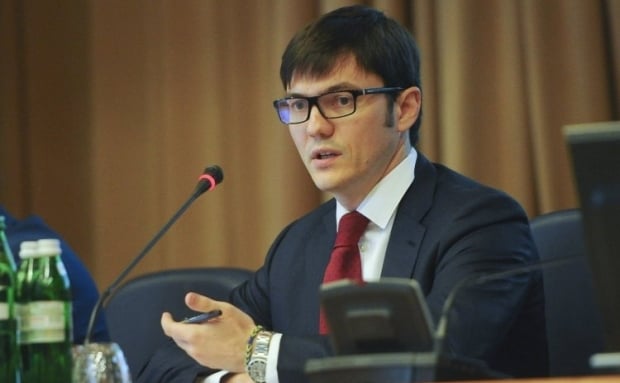
In turn, Stets demanded that "all telephone conversations and personal meetings with representatives of political parties, MPs and representatives of business structures be recorded in a separate register, to be publically available at first notice upon requests from the media.”
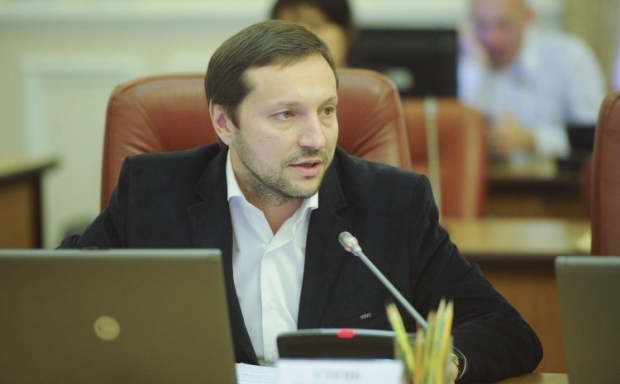
Pavlenko and Kvitashvili expressed their will to continue the reforms they had started earlier and stood against the destructive interference of political forces in the government's work.
Yatsenyuk said that the Cabinet was developed an action plan for the next 12 months and required total lifting of political pressure.
"We came as one team, and we will work as a team,” said the prime minister, adding that Abromavicius is under protection of the Cabinet and the [pro-Yatsenyuk] People’s Front Party, and any attempts of pressure on him will be refuted.
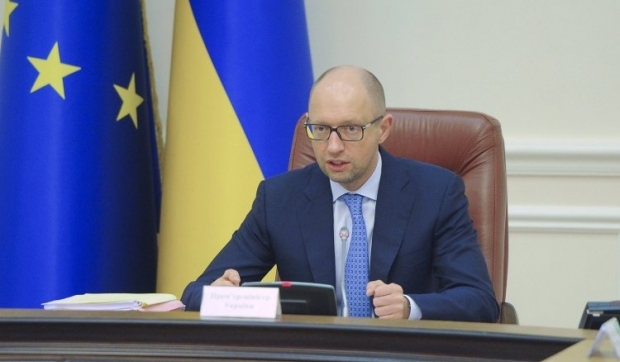
Meanwhile, the fate of the current government will be discussed after the Cabinet’s report to the Rada on February 16. But it is already becoming apparent that Yatsenyuk’s position has strengthened significantly due to the active support of the unity of the presidential and executive branches of power from Ukraine’s international partners,.
The fundamental devaluation of the hryvnia
Against the background of political scandals last week, the national currency exchange rate on the interbank market fell by 30 kopiykas and reached the psychologically significant level of 26 UAH / USD. In the retail market the dollar was sold for UAH 27-27.5.
According to the head of the National Bank of Valeria Gontareva, reducing the hryvnia is due to fundamental factors.
"First of all, at the beginning of the year, there is a seasonal decline in the business activity that cannot but affect the supply of currency in the interbank forex market. Also, as the National Bank has repeatedly emphasized, certain exchange rate fluctuations have been associated since early January with long holidays. In addition, as you know, UAH 30 billion was taken from the single treasury account late December. In particular, there was the return of a large part of the VAT debt," Gontareva said.
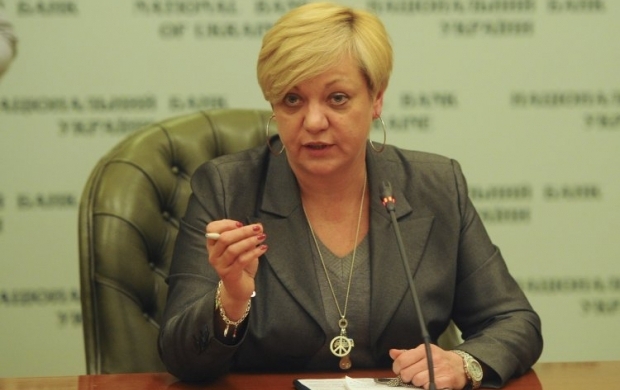
At the same time the head of the National Bank of Ukraine stressed that the regulator will not generate the additional supply of currency on the interbank market, if the decline in the hryvnia will be caused by fundamental factors.
However, the NBU still decided to sell another $50 million on the interbank market after a 1.5-week break because of the additional pressure on the hryvnia’s exchange rate due to the complicated political situation.
"We will never go out on the interbank market if the hryvnia is weakened due to fundamental factors. If it is due to situational factors, such as, for example, today, due to the political situation, the National Bank will enter the interbank market to smooth out fluctuations," said the head of the NBU.
Given the significant devaluation of the national currency, additional support can be received from the positive balance of payments statistics. According to National Bank’s data released last week, the balance of payments in 2015 has for the first time in 15 years recorded a surplus, and the trade surplus amounted to $849 million.
At the same time, the state debt of Ukraine decreased by 6% in 2015, to $65.5 billion, growing 43% in the hryvnia equivalent. Thus, the national debt amounted to 81% of GDP last year, due to the active policy of borrowing from international donors.
Despite substantial debt to GDP ratio, Ukraine needs the IMF’s support for the financial stabilization. However, according to some media reports, a program of further cooperation has not yet been agreed. That is, the fate of the next $1.7 billion tranche the Ukrainian authorities had planned to receive in February to replenish foreign exchange reserves remains uncertain.
Given that the increase in the volume of gold reserves is the key to the stability of the hryvnia, the delay in obtaining a new tranche is deemed a negative factor for the financial system. Last week rich on political and corruption scandals didn’t help Ukraine’s international partners confide in the abilities of the Ukrainian authorities to reform the country and bring it out of the protracted economic crisis.
Maksym Shevchenko (UNIAN)

